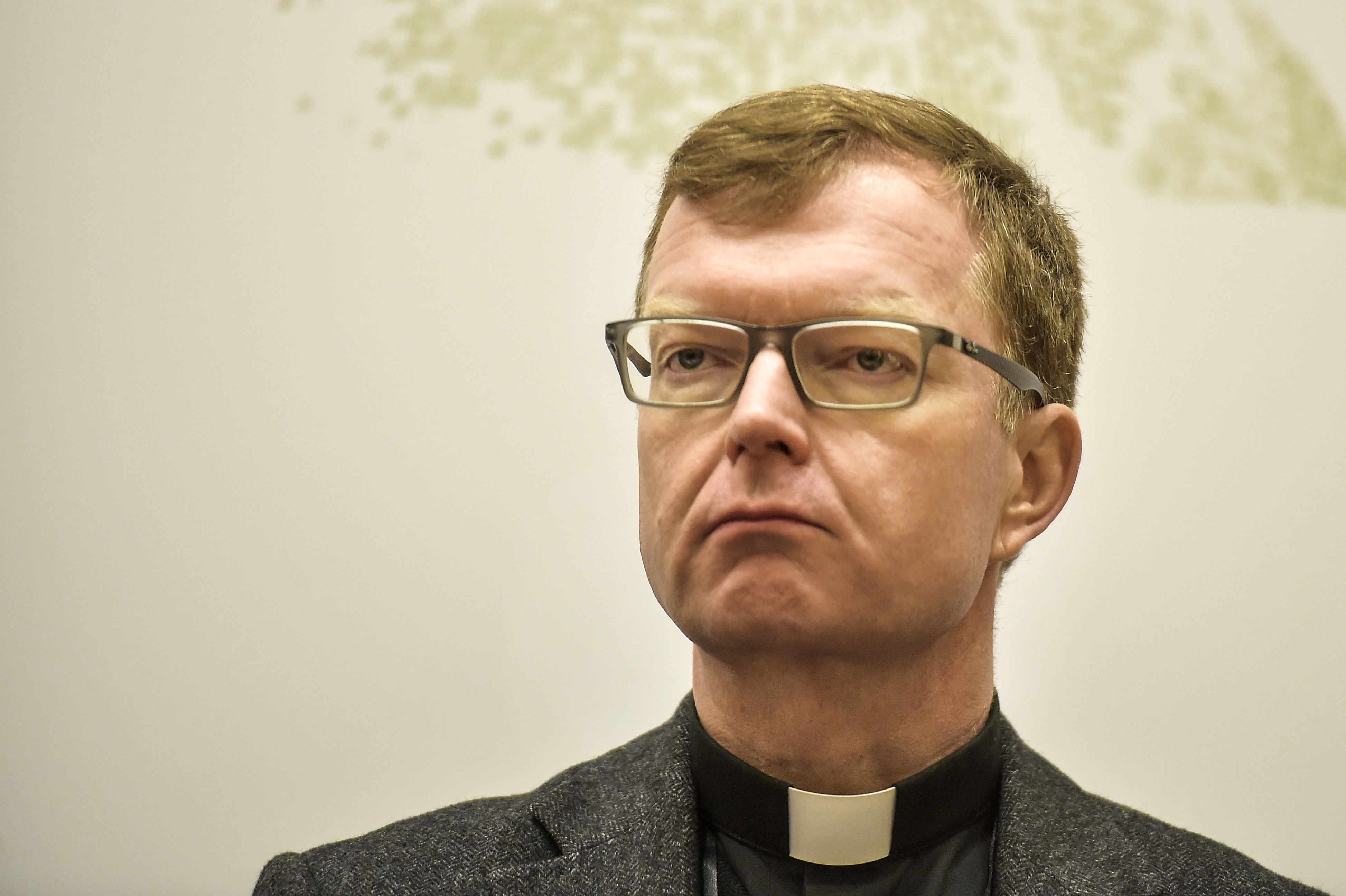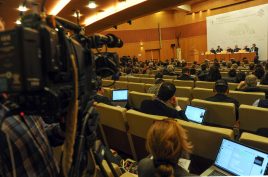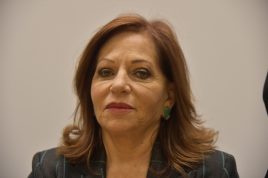OVERVIEW
Interview with Fr Hans Zollner, member of the Organizing Committee of the meeting on the Protection of Minors in the Church. “A lot of things have happened in the past days that were unimaginable until a couple of years ago. Addressing this issue, bringing together all the world’s bishops’ Conferences, listening to the victims, giving the floor to women. Being so open and straightforward necessitates a high degree of freedom on the part of the speakers as well as a deep willingness to listen, which is precisely what happened.”

“I had never seen the world episcopate so deeply moved, gathered in a spirit of reflection and prayer. I consider it an achievement. Of course it’s something that cannot be measured that is also difficult to detail, but I consider it to be a concrete outcome that will deliver concrete results in the various Countries of origin, in Bishops’ Conferences and among the men and women religious.” Father Hans Zollner, member of the Organizing Committee, gave a positive assessment of the meeting on the Protection of Minors in the Church that closed past Sunday at the Vatican. “In my opinion this was the centrepiece of what could be expected from this meeting”, he added. “It happened also thanks to the testimony of the victims. Their stories touched the hearts of the pastors of the Church. Listening to them, gathering in silence with them, praying with them and for them were moments of special importance, that cannot be underestimated.”
Father Zollner, today many people are asking what will remain of the meeting. What is your answer?
First of all it should be said that the meeting was the first of its kind. It had never happened before, not in this shape or form. For the first time world leadership of the Catholic Church came together to address a theme that involves everyone, not only for the fact that the Church is one and what happens in a Country has an impact on all others, but also for the fact that this tragic reality of abuse is found in every country and in every continent.

The meeting garnered great media attention. What was the most prominent aspect in the journalists’ questions?
As a whole I think that the journalists appreciated our transparency, communicated in our briefings, in the information posted online, along with the live broadcasts of conferences and of the main liturgies. Thus I believe they appreciated not only the fact that we emphasized the importance of transparency but also the effort we made to guarantee utmost transparency, along with our openness in answering their questions. The point is that concrete gestures are expected especially in North-America and among many faithful in the United States. However, I find it difficult to imagine what is meant exactly with concreteness when and if we talk of the outcome of a meeting that lasted three days all together (the fourth day was dedicated to the celebration of the Holy Mass). The Pope highlighted 21 reflection points collected from the suggestions of Bishops’ Conferences already in his opening remarks, so he gave us a lot of homework.
So what you are saying is that concrete gestures will be visible in time?
Some of the decisions are ready to be implemented. But for things to be done in the best way they need to be discussed and reviewed by several people. However, from what I have seen I can reconfirm that we are on the right track.
A closed-door inter-dicastery meeting focused on the protection of minors was held in the Bologna Hall of the Apostolic Palace on the day after the summit. Could you tell us more about it?
We spent the entire morning with the heads and representatives of all dicasteries of the Roman curia who in different ways are involved in this issue. We spoke about the documents that will be published soon, how to create the task forces, as well as the next actions. I have no doubt that that those who were present were fully aware of the fact that this is only the beginning, not the end.
When you mention documents that are up for publication, you are referring to the “Motu Proprio” for the Vatican. Can you explain its content and what innovations it will bring as compared to the previous Apostolic Letter issued Motu Proprio “As a Loving Mother”?
The Motu Proprio will regard the laws and guidelines inside Vatican City State and within the Vatican City Vicariate. They are ready for promulgation that will take place by means of a law called Motu Proprio. It should not be confused with the Motu Proprio “As a Loving Mother.” In this respect we are also reflecting on how it can become more effective in practice, also because several realities of the Roman curia are involved, namely, several Congregations and representatives of the various structural and juridical spheres: from the bishops to the Eastern Churches, to the religious, without overlooking the Dicastery for the Laity. This will probably require more time for in-depth revision, that is seriously carried out and that meets the need to clarify the proceedings in the event that a bishop acts negligently or a religious superior does not do what he/she is required according to Canon law.

You are a Twitter follower, so you probably read the disappointment of Marie Collins along with the one conveyed by representatives of associations of victims, such as the Abuse Network. Were you surprised by this reaction? What is your answer?
I heard also other people who were victims of abuse. They wrote us that they realize we cannot work miracles but they encourage us to continue along this path. They acknowledge that what has happened over the past few days would have been unthinkable until a couple of years ago. Addressing this issue, bringing together all the world’s bishops’ Conferences, listening to the victims, giving the floor to women. Being so open and straightforward necessitates a high degree of freedom on the part of the speakers as well as a deep willingness to listen, which is precisely what happened.

What is your final assessment?
Ultimately, I can say that I am pleased. The meeting accomplished everything that it could have, and most of all, we saw that it had an impact on many participants. That’s what they said and I saw it for myself. I noted it in especially in the group meetings. Many people said they will return home as different people also thanks to the testimonies of the victims and to the open, sincere dialogue that took place.